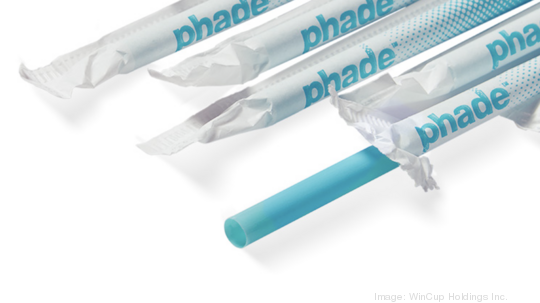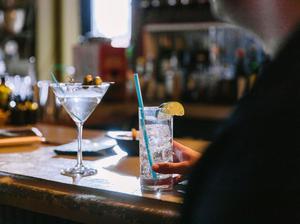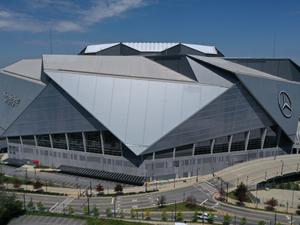
When food service product business New WinCup Holdings Inc. launched sustainable straws in 2020, the company knew restaurants and retailers would be target customers. It didn’t expect excitement for the product to come from sports stadiums.
Two years after launching the biodegradable “Phade” straws, WinCup's product has been used in venues hosting the Super Bowl, the NCAA National Championship game and the PGA Championship.
The Stone Mountain-based company's eco-friendly straws have helped some of nation’s most significant sports venues bolster their sustainability efforts. Some of which include SoFi Stadium, Staples Center, Yankee Stadium, Lambeau Field, Gillette Stadium and Atlanta's Mercedes-Benz Stadium, among others.
WinCup's growing customer base of sports venues reflects an increase in environmental consideration for sporting events, along with higher demand from performers for venues to have sustainable practices.
Atlanta, for instance, could have a competitive edge for booking events because both State Farm Arena and Mercedes-Benz Stadium earned recognition for waste management by diverting 90% of waste from landfills. Musical artists Billie Eilish and Coldplay required each venue to have sustainable operations before finalizing agreements to perform.
“Professional sports stadiums have developed sustainable footprint strategies and are searching for manufacturers that provide truly green solutions,” said Michael Winters, president and chief revenue officer at WinCup. “When we showed them how quickly our straws decomposed, it struck a chord.”
Seeking the replacement for straws
The food service industry and governments alike have been looking for a solution for eco-friendly straws. Traditional plastic straws contribute to plastic pollution, and alternative paper straws can contain carcinogens such as toxic “forever chemicals” in their water-resistant coating.
In 2018, bans on all single-used plastic items, including straws and stirrers, were proposed by the U.K. government and New York City. Hilton Hotels, Starbucks and McDonalds are examples of business giants that have moved toward ending their plastic straw use.
WinCup launched its Phade straws after 18 months of research, according to the company. The straws are made with polyhydroxyalkanoate, which is derived from fermenting canola oil. The straws become a food source for bacteria, breaking down within months in marine, backyard and industrial compost environments.
While the demand from stadiums doesn’t represent a substantial amount of its total income, Phade straws’ presence in the venues has given them enormous exposure to build the overall brand, Winters said.
WinCup's market growth
As of 2021, WinCup had produced more than 250 million Phade straws. Sometime in February, Winters said the company expects to sell its landmark 1 billionth straw.
The company has also landed partnerships with Dunkin Donuts and Walmart to carry the straws. The product is currently in over 400 distribution centers, Winters said.
The straws are primarily produced at the company’s Jacksonville facility. The company has seven other facilities including in Higginsville, Missouri; Mt. Sterling Ohio; and Metuchen, New Jersey. WinCup has 960 employees, 240 of which are based in Georgia.
WinCup’s first eco-friendly alternative to disposable food products was its biodegradable foam cup, which breaks down around 94% in four years in wet and biologically active landfill conditions. That product has seen triple-digit growth in recent years, Winters said.
As the company seeks to expand its eco-friendly product portfolio, it will look to add additional manufacturing sites in the U.S., Winters said.






